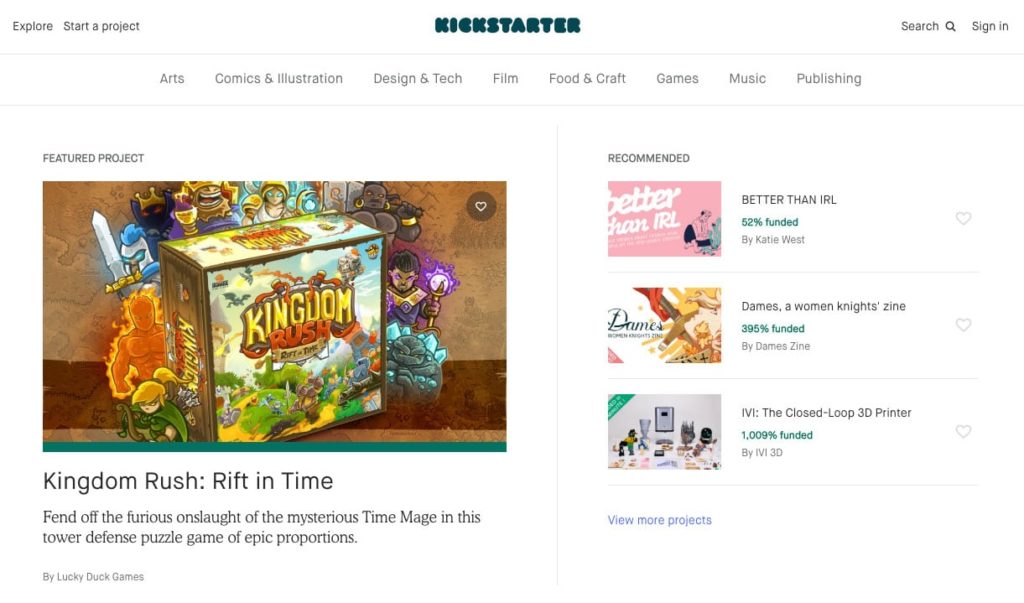Kickstarter because backing a project is about more than money. You’re getting behind an internet stranger’s creative vision.

Founded in 2009, Kickstarter is a crowdfunding platform that is focused on funding creative projects. The projects support range from films, games, music, art, design to technology. Founded in 2009, Kickstarter has raised pledged billions to fund over 100k creative projects. Backing a project through Kickstarter is seen as much than financial backing, it is about helping people to achieve their dream, to create something they want to see exist in the world.
Kickstarter projects can be anything from a new album or writing a book, as well as products and inventions. It’s not really for buying equipment or helping a nonprofit, and you don’t get to keep your money unless you reach your goal through financial pledges.
Table of Contents
Kickstarter has a donation/reward model. Backers (donators) support a project and get an inside look at the creative process. In addition, they also get to choose from a variety of unique rewards offered by the project creator.
The rewards vary from project to project. However, they often include a copy of what is being produced (CD, DVD, book, etc.) or an experience unique to the project, like meeting the creator or getting producer credits.
Project creators keep 100% ownership of their work, and being a rewards model, Kickstarter cannot be used to offer equity, financial returns, or to solicit loans. A Rewards type means artists or creatives can retain full ownership of their project (or business).
If your project is successfully funded, Kickstarter will apply a 5% fee to the total amount of funds raised. Stripe, their payments processor, will apply credit card processing fees of 3% + $0.20 per pledge. Pledges under $10 have a discounted ‘micropledge’ fee of 5% + $0.05 per pledge.
Since KickStarter offers an All or Nothing funding model, there is a 0% non-completion fee. This is due to Kickstarter not charging donators anything if you do not complete your campaign. Some crowdfunding companies may charge you a fee for All or Nothing for whatever reason, but Kickstarter’s 5% fee is standard in the crowdfunding industry, although it’s on the higher end (typical fees are 3-5%). Not having non-complete fees lessens the financial burden for many “starving artists” trying to raise funds. (More of a burden is Stripe’s deductions per transaction.)
Kickstarter offers an All-or-Nothing fund type. This may discourage some users, but this fund type can benefit many. For example, say a project reaches $1,000 of its $5,000 goal. An All-or-Nothing fund type ensures that backers won’t be expecting you to use $1,000 to provide rewards on a project intended to earn $5,000. It’s helpful for backers, too, in that they can be sure their money is helping the creator to make actual progress on their project.
Kickstarter because backing a project is about more than money. You’re getting behind an internet stranger’s creative vision.